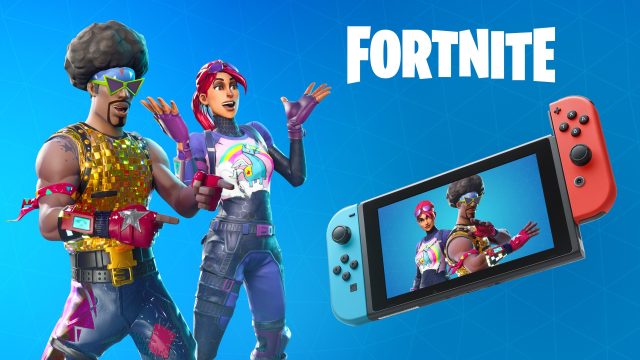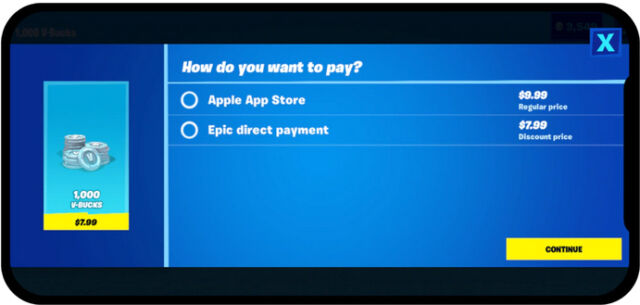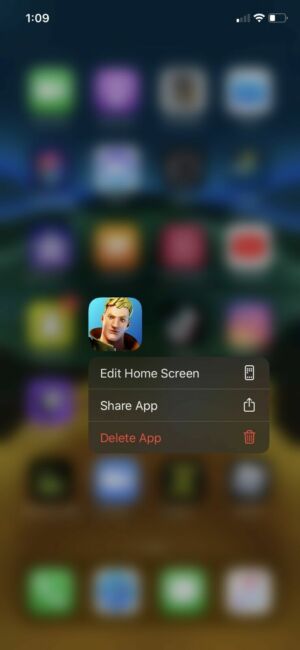
Federal District Judge Yvonne Gonzalez Rogers heard arguments this morning regarding Epic's request for a temporary injunction in its case against Apple. That injunction would force Apple to put Fortnite back on the iOS App Store during the trial, following the game's removal last month over Epic's skirting of Apple's in-app purchase rules.
The hearing gave the clearest indication yet of both parties' best arguments in the matter and of which positions seem most likely to hold sway with Rogers as the case heads toward a full trial.
When is a monopolist not a monopolist?
A central issue in the case is Epic's contention that Apple's exclusive control over the iOS App Store constitutes an illegal monopoly that hinders competition. Today's discussion of Epic's claim centered heavily on what market, exactly, Apple is allegedly monopolizing.
Apple argued that iOS is just one of many platforms in the wider competitive market for video games like Fortnite. There, Apple faces competition from console makers, PC-based stores like Steam and GOG, and Google's Android platform to name just a few. In this market, Rogers herself noted that most of the competing platforms charge the same 30 percent fee to developers as Apple, suggesting iOS lacks any harmful market-controlling power.Epic's lawyer Gary Bornstein argued in response that the market in question should not simply be viewed as "all the ways someone can reach a user to play a video game." Where Apple holds the monopoly, he said, is in the market for developers to distribute their game to iOS users, specifically.
"In order for Apple to face competitive discipline [from the market], it would mean there would need to be a meaningful number of developers who would give up the platform if Apple raises its price," Bornstein argued. "We know that's not the case. They're not going to give up the opportunity to reach a billion users."

That's an important distinction for Epic to make, legally. There's some existing case law to suggest a company can have monopoly control over a secondary market (in this case, app downloads) even if it faces competition in a wider market (in this case, video game and/or smartphone hardware). Proving that case is an uphill battle, though, that usually requires showing that customers are unfairly "locked in" to that secondary market after making the primary purchase.
63 percent vs. 10 percent
In the hearing, Bornstein noted that "63 percent of iOS users who play Fortnite play only on iOS." Those players aren't technically "locked in" to iOS—they could switch to another platform, and many do. But they also don't necessarily have multiple devices to play on and might not be able to afford separate hardware to access Fortnite, he said.
Even if iOS player do have access to other hardware, Bornstein said the situations are not always analogous. "That's like saying there is not a [monopoly] market for ride-sharing and taxis if people can also walk or bike or get a friend to drive them or access public transit," he said. "You can't play an Xbox when you're on a bus." (Though you can play a Switch, as Judge Rogers noted in response).
Apple lawyer Richard Doren said the number of iOS Fortnite players who don't use other platforms is immaterial. Instead, he cited Epic co-founder and CEO Tim Sweeney's assertion that less than 10 percent of Fortnite's daily average users played on iOS. That shows "Epic itself uses the [alternative] options in the marketplace available to it," he said, and that Apple can't exert monopoly control over Epic's Fortnite business.
"Fortnite is not entitled access to everyone on the globe," Doren said. "They just need alternatives [to iOS] available, and they have that in spades."In her statements, Judge Rogers seemed more inclined to Apple's view of its position in the wider video game market. "If we look at this plaintiff and industry, walled gardens have existed for decades," she noted. "Nintendo has had a walled garden. Sony has had a walled garden. Microsoft has had a walled garden... In this particular industry, what Apple is doing is not much different... It's hard to ignore the economics of the industry, which is what [Epic is] asking me to do."
Fortnite aside, though, Judge Rogers also said she was inclined to agree with Epic's assertion that "there is an uproar in the marketplace about the lack of competition for [distribution of] iPhone apps. You read the papers, I read the papers, it's there." That said, Judge Rogers also suggested this specific case might not be the right one to make that argument, "given the amount of competition for mobile games."
Tie this on for size
Epic's monopoly argument also extends to Apple's in-app purchase system, which Epic says it is illegally tying to the market for App Store downloads more generally. Even if Apple maintains control of the App Store, Epic argued it should allow developers and users to make use of their own systems for the separate decision to make in-app purchases.
Apple argued that in-app purchases are not a separate product from the App Store, though. Instead, Doren said they are better seen as just "a way of collecting commissions" for App Store content, which isn't marketed or sold separately from the App Store itself. In-app purchases can't be separated out because they are an "essential ingredient of Apple's formula for success" that has "been there since the beginning as an integrated part of Apple's offerings." Maintaining that integration is important for security and parental control reasons too, Doren said.
Apple also said there has been no demand for alternatives to its own IAP system. Here, Epic's Bornstein countered with evidence from Fortnite's own attempt to circumvent the process. In the hours after Epic's Direct Payment option was offered last month, 50 percent of users opted for that option instead of Apple's IAP system, he said. Yes, Epic's option undercut Apple's on price, but Bornstein said that just shows the room for competition to lower costs.

Bornstein also noted a double standard of sorts from Apple when it comes to other types of apps. A ride-sharing app like Uber can charge its customers directly for its services without using Apple's in-app purchase systems, he said. Epic is just seeking the same opportunity for its games.
While both sides cited competing precedents that they said were applicable to their position, Judge Rogers seemed inclined to side with Apple. "I just don't see this as a separate and distinct product," see said. "I see it as a very creative way [by Epic] to get at the 30 percent [developer cut that Apple charges]."
Moving forward
That was all something of preamble to the core point of the hearing, which was whether Rogers would extend or amend her current temporary restraining orders in the case into an injunction that will last at least through the rest of the trial. Epic says it needs emergency relief from the harm the Apple monopoly is currently causing its Fortnite business by barring it from the App Store. Apple says Epic can undo that harm right now just by coming back into compliance with its original contract regarding in-app purchases
Rogers' strongest words of the hearing were reserved for Epic, which she continued to admonish for bringing its current problems on itself. "You were not forthright," she told Epic's counsel. "You were told you couldn't do [your own in-app purchasing option] and you did... You can try all you want, but you're not going to convince anybody that you tried to have Apple approve of it. It's self-harm.
"You lied about it by omission," Rogers continued, "by not being forthcoming. That's the security issue... As you say, it's not malware, but let's not debate a point. There are plenty of people in the public who consider you guys heroes for what you did, but it's still not honest."
Epic's strongest response to this was that its Direct Payments hotfix was needed as a "proof of concept" to show that there was, indeed, demand for a separate in-app purchase option in Fortnite. "We had it for six hours, but they were an important six hours," Epic lawyer Katherine Forrest said. "It showed consumers want the choice, want lower prices. We did the hotfix because we had to."

Rogers seemed reluctant to impose her will to force Fortnite back onto the App Store in this case. "In general, federal courts don't issue injunctions on contractual dispute, and that's what this is," she said. The only exceptions generally are when the status quo threatens to put the company involved out of business, something that is not a risk with Epic and Fortnite, where "the iOS share of the pie is pretty small."
At the same time, Rogers seemed inclined to leave in place an order protecting Unreal Engine development from retaliation related to the Fortnite situation. Development of the engine takes place under a separate contract, she said, and the "harm to the public" (i.e., other iOS app developers) would be "incredibly high" if Unreal Engine development was halted during the trial, Rogers said.
Epic also pushed back hard on Apple's assertion that Unreal Engine could serve as a sort of Trojan horse for further end-runs around Apple's contracts and security systems. Rogers agreed that Apple's "sky-is-falling-down rhetoric on this topic is overblown" and that there's little evidence that "everything is going to explode because the Unreal Engine is allowed to operate."
Rogers should issue a written decision on the matters discussed here in the coming days. Going forward, though, Rogers said that she felt "this case should be tried to a jury... I think it's important enough to understand what real people think. Do these security issues concern people or not? Are the concerns of the developers incredibly important? I think many people would feel it is. I do think that this is something for which jury insights would be important. Otherwise it's just one more judge."
"come" - Google News
September 29, 2020 at 04:55AM
https://ift.tt/338wWOy
Apple vs. Epic hearing previews a long, hard-fought trial to come - Ars Technica
"come" - Google News
https://ift.tt/2S8UtrZ
Shoes Man Tutorial
Pos News Update
Meme Update
Korean Entertainment News
Japan News Update
Bagikan Berita Ini














0 Response to "Apple vs. Epic hearing previews a long, hard-fought trial to come - Ars Technica"
Post a Comment